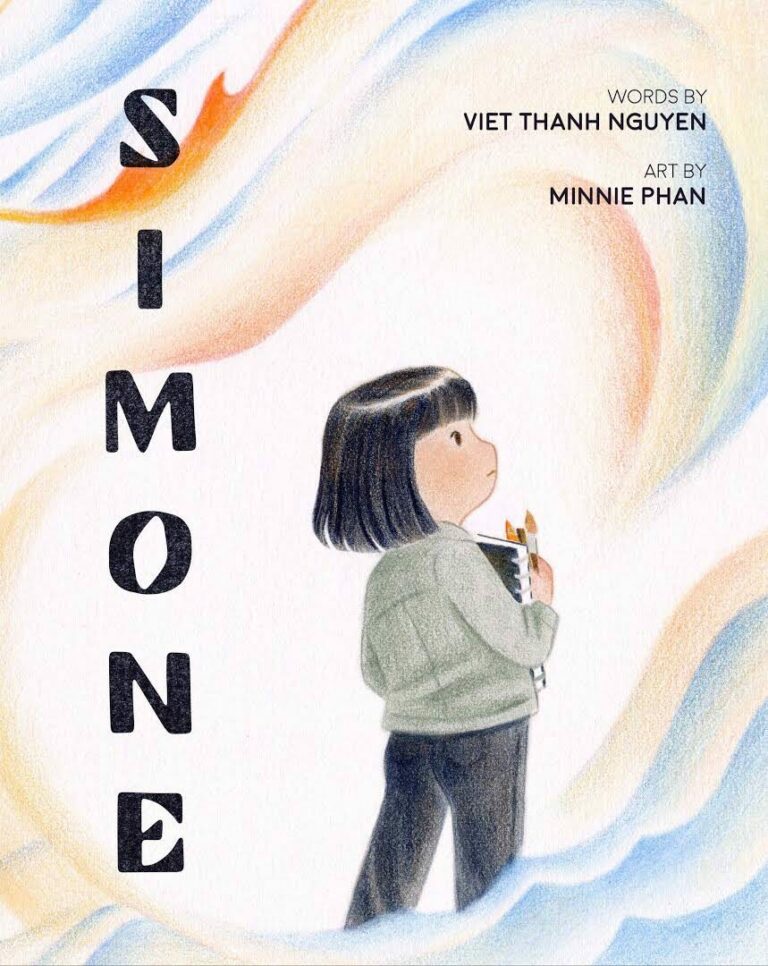The Wall Street Journal calls Viet’s novel a “dark and exciting debut.”
The Departed

By
‘I am a spy, a sleeper, a spook, a man of two faces,” says the narrator of “The Sympathizer” (Grove, 371 pages, $26), the dark and exciting debut novel by Vietnamese-born American Viet Thanh Nguyen. The unnamed narrator, a Western-educated Vietnamese man, is writing his “confessions.” During the war he worked for the CIA, serving as aide-de-camp to a Vietnamese general, while secretly sending intelligence to the insurgents. Now, sometime in the late 1970s, he is in a communist prison, addressing an interrogator who demands that he explain his activities among the enemy.
Most espionage novels work like shell games, concealing their kernel of truth through a display of feints and deceptions. Unreliability can be relied upon. But Mr. Nguyen’s narrator is sincere when he claims that his account is “guilty of honesty.” He is a double agent who feels torn apart by his doubleness. He spied for North Vietnam, but his friends were the soldiers in the South. (“They were my enemies, and yet they were also brothers-in-arms.”) He hates America but understands the allure of the American dream. He is even a physical embodiment of East and West because his father was French, making him, he believes, painfully representative of his war-torn country—“cursed, bastardized, partitioned.”
His mordant confessions deal little with the war itself. “The Sympathizer” starts with the fall of Saigon in 1975, depicting the corrupt jockeying for places on the departing planes. It’s a frenzied, abrasive, attention-grabbing overture, and the cynical mayhem of the evacuations is a fittingly ignominious send-off after “ten years of living in a bubble economy pumped up purely by American imports; three decades of on-again, off-again war, including the sawing in half of the country in ’54 by foreign magicians and the brief Japanese interregnum of World War II; and the previous century of avuncular French molestation.” The narrator is shipped to California with the general, who harbors delusions of continuing the war and opens a liquor store as a front to fund rebels based in Thailand. Again the narrator is his double-crossing confidant, simultaneously carrying out the general’s perverse orders—the assassination of people falsely fingered as spies—while sending coded reports across the ocean.
The section of “The Sympathizer” that will occasion the most talk is a digressive yet brilliant parody of Francis Ford Coppola’s “Apocalypse Now.” Here the narrator is recruited as a consultant to a megalomaniacal director—dubbed the Auteur—who is filming a blockbuster Vietnam War movie in the Philippines. Excoriating ironies abound. The narrator has to find starving Vietnamese refugees to play the parts of bloodthirsty Viet Cong, the very people they had escaped. Speaking roles go only to scenery-chewing Americans. The film’s arrogance “marked something new in the world,” he bitterly observes, “for this was the first war where the losers would write the history instead of the victors.” Eventually, the lunatic Auteur tries to kill him.
Black humor seeps through these pages (“Remember that the best medical treatment is a sense of relativism,” a doctor advises), as does a deepening sense of despair. In the brutal finale, when the narrator has returned to Vietnam only to be “rehabilitated” by his supposed comrades, he has been so poisoned by dirty work that he has lost all conviction. Seeing things from two sides has simply meant that he has seen twice as many lies.


